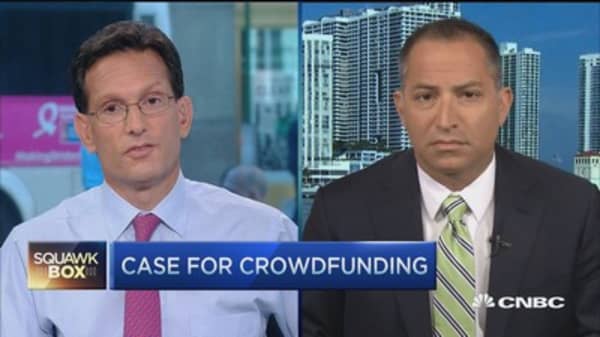Moelis & Company, where I now serve as vice-chairman, was one of those companies that went public in 2014. Since then, the business has grown, and, as a result, employment with the firm has grown as well. Our number of managing directors is up over 15 percent since the IPO.
There are many other companies that could tell a similar story. Earlier this year, a study by the Wall Street Journal revealed that the 454 companies that had gone public under the provisions of the JOBS Act created approximately 82,000 new jobs. The number of employees for these companies was up roughly 30 percent from their pre-IPO head count. By comparison, from the time of enactment of the JOBS Act to the time the study was undertaken, overall private-sector employment was up only 6.6 percent. To be fair, some of these companies would have gone public and would have created new jobs — even without the JOBS Act. But the expedited IPO provisions made it easier for these companies to raise capital through a successful public offering.
Read MoreHere's why jobs growth is picking up steam
While it is long past time for the SEC to finalize the crowdfunding rules, there will still be more work to do. For example, studies point to the recent surge in banking regulations as contributing to the collapse of new bank start-ups. Fewer new banks mean less access to competitive capital for businesses and families.
Similarly, our patent laws, tax code, and business-formation rules all need reform. The bad news is that much remains to be done. The good news is that the JOBS Act is proof that we can in fact make progress in creating the type of environment that is necessary to support the entrepreneurs and start-ups we are all counting on to grow our economy.
Commentary by Eric Cantor, the former House majority leader, who served as the U.S. representative for Virginia's 7th congressional district from 2001 to 2014. He is currently vice chairman and managing director at Moelis and Co. Follow him on Twitter @EricCantor.



